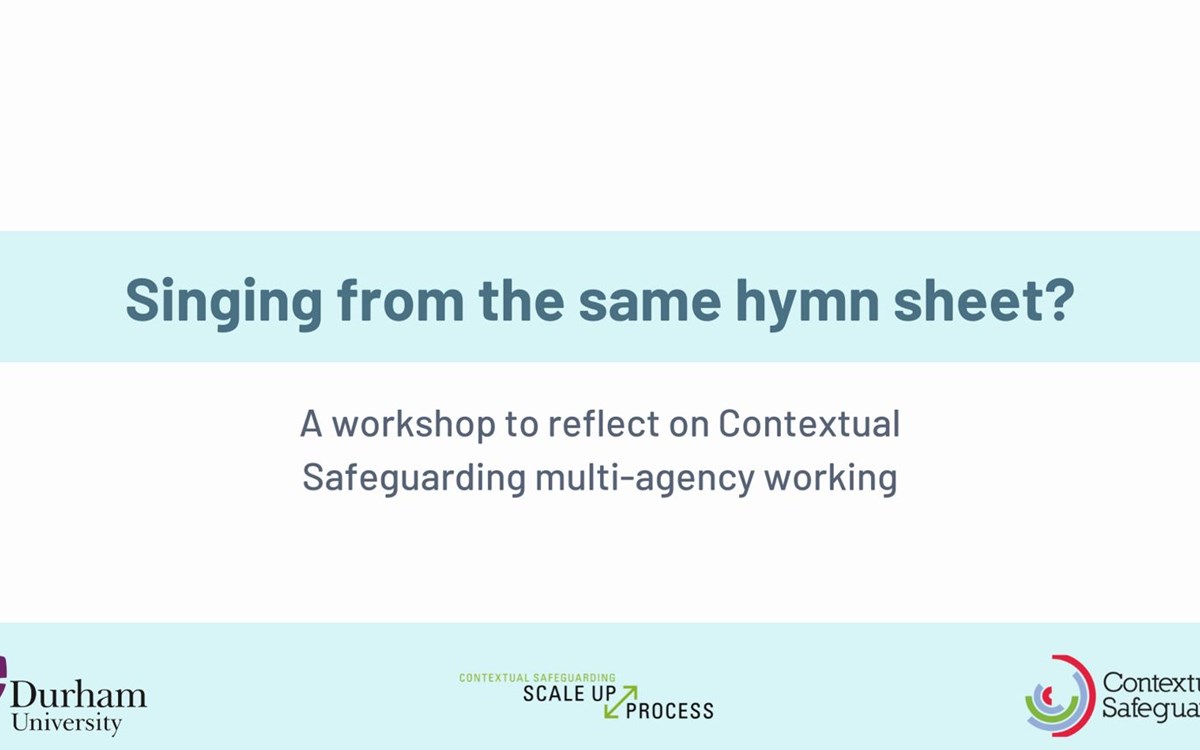Are you involved in planning and delivering Contextual Safeguarding responses and interventions? Do you work closely with people from other agencies and professions as part of this work? Would you value some time and space to think together about the different training, approaches and value-bases that you each bring to the work? Would you appreciate the chance to reflect on what might be driving the different ways that each of the agencies in your partnership sees and responds to adolescent safety and harm? If you answer yes to these questions – this is the workshop for you!
We have developed this workshop because we recognise that Contextual Safeguarding asks safeguarding partnerships to work in a way that is very different from the way they have been working up until now. Not only are partnerships asked to focus their safeguarding work on contexts outside the home – in parks, schools, peer groups – they are also asked to change those contexts to make them safer for young people. Our research showed that although partnerships have been able to turn their focus to harm outside the home, they have found it much harder to change contexts for young people. We have seen that instead of changing contexts, the focus of safeguarding work is often on changing the behaviour of young people.
It is not surprising that safeguarding partnerships tend to focus on behaviour-based methods to create safety because this approach dominates helping services and professions. If partnerships want to follow a Contextual Safeguarding approach though, they will need help and support to shift to a more ecological way of working. This is where the workshop comes in! It is designed to help local safeguarding partnerships carve out the time they need to reflect on how they work together. The workshop invites participants to look at the dominant values and ideologies that underlie the decisions they make in their partnerships. It supports them to think about how they can develop a shared vision around making changes to contexts, rather than to the behaviour of young people.
This briefing can be paired with the DIY workshop, infographic and journal article.
This workshop is designed for multi-agency partnerships who are keen to learn together how to deliver responses that are in line with Contextual Safeguarding. To run the workshop, you will need a facilitator who can present the introductory material and lead the discussion, but all the material they/you will need is provided in the resource, with step-by-step instructions along the way. The workshop will last 45min-60mins and uses a mixture of learning methods to support participants to reflect on how their partnership currently approaches adolescent risk and harm, what needs to change and how.
The workshop was developed from research which found that when multi-agency partnerships try to implement Contextual Safeguarding, although they are often successful in focusing on contexts outside the home, their default response tends to focus on trying to change the behaviour of young people, rather than the context. One of the reasons for this is that taking an ‘ecological’ approach – as Contextual Safeguarding asks us to – is new to most agencies. As with any change, it takes time to learn. We hope that this workshop will support partnerships to take time out of the busyness of day-to-day practice to reflect together on the values, assumptions and perspectives that underpin their work in a way that is supportive and forward looking.
The workshop will cover the following things:
1. A quick introduction to Contextual Safeguarding and partnership working
2. An exercise on 'behaviour-based' approaches and 'ecological approaches’
3. A group activity to think about the approaches used in different services/partnerships - with options to focus on:
• Multi agency meetings and panels
• Multi agency teams or working
• Extra-familial harm
• Senior leaders
4. Space to develop action points for yourself, your team/meeting and your wider organisation

This workshop should be paired with the briefing and is supported by the infographic and journal article.


